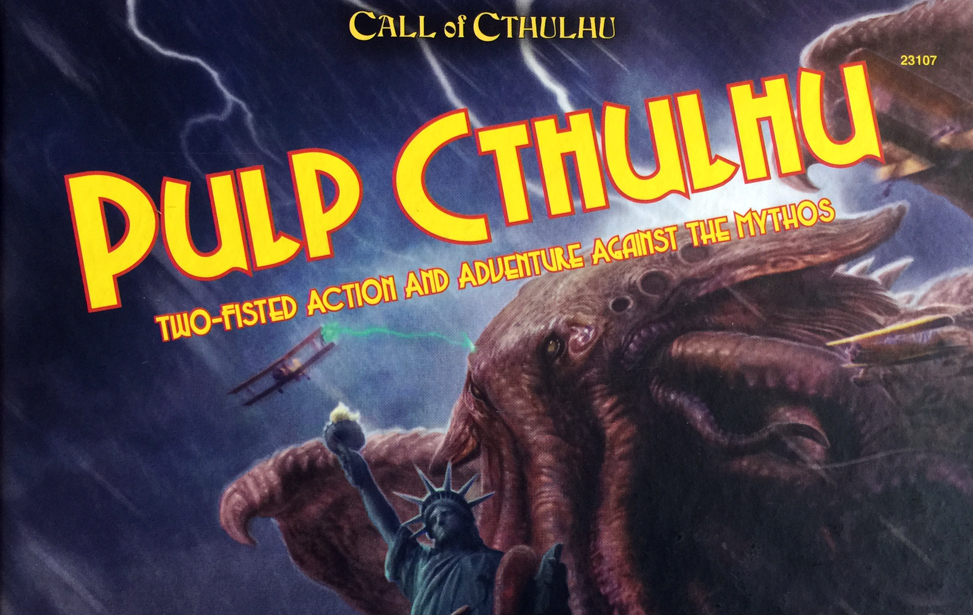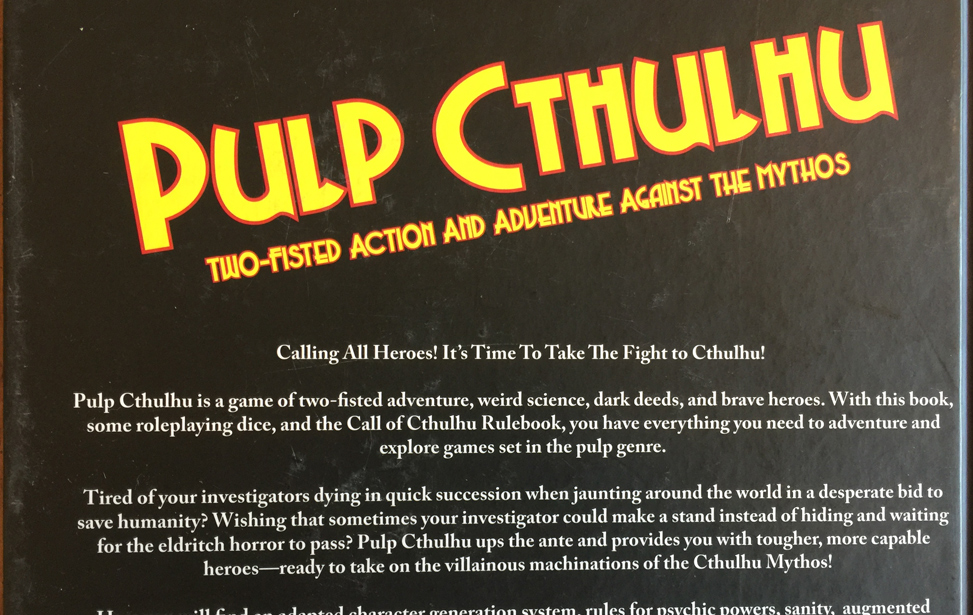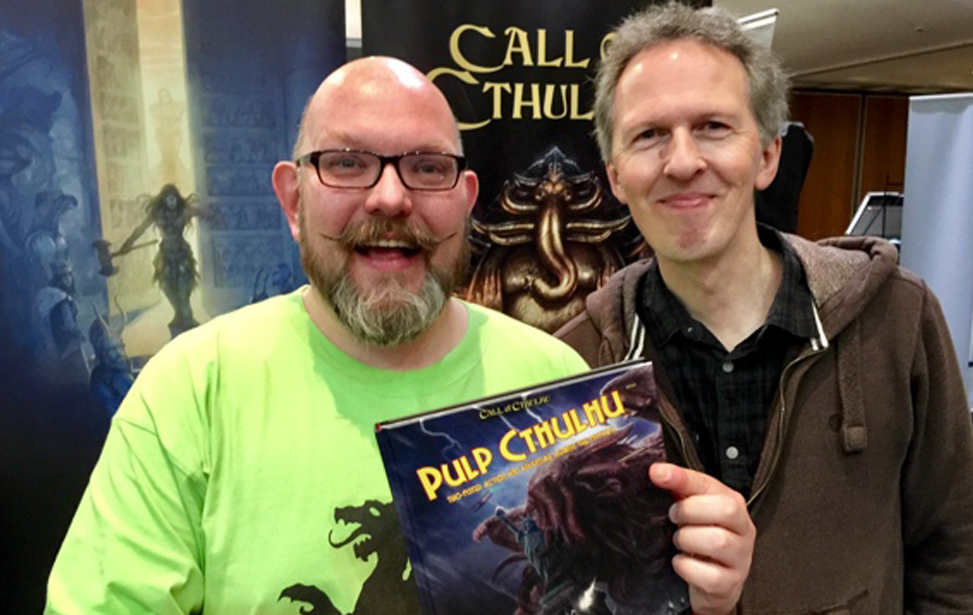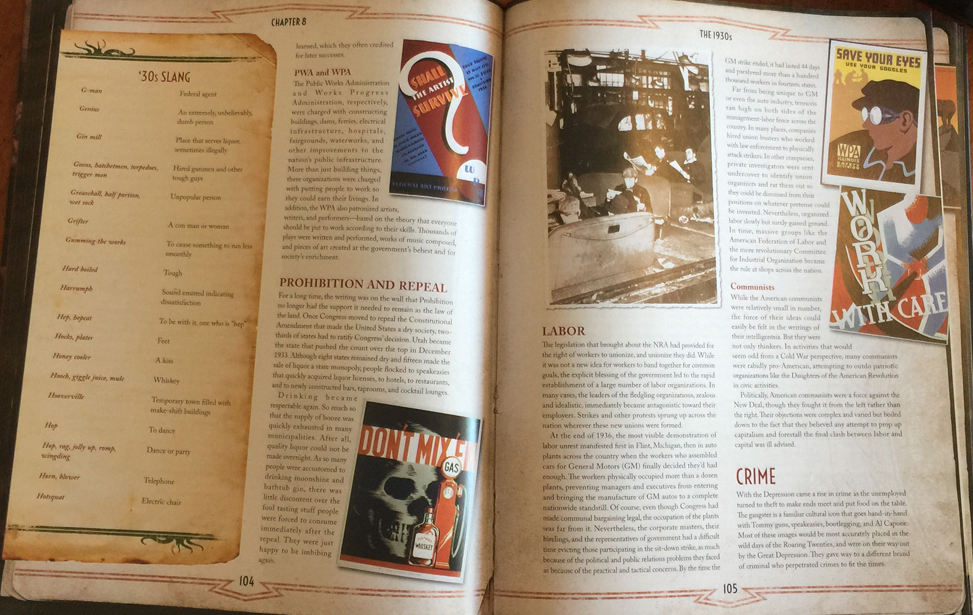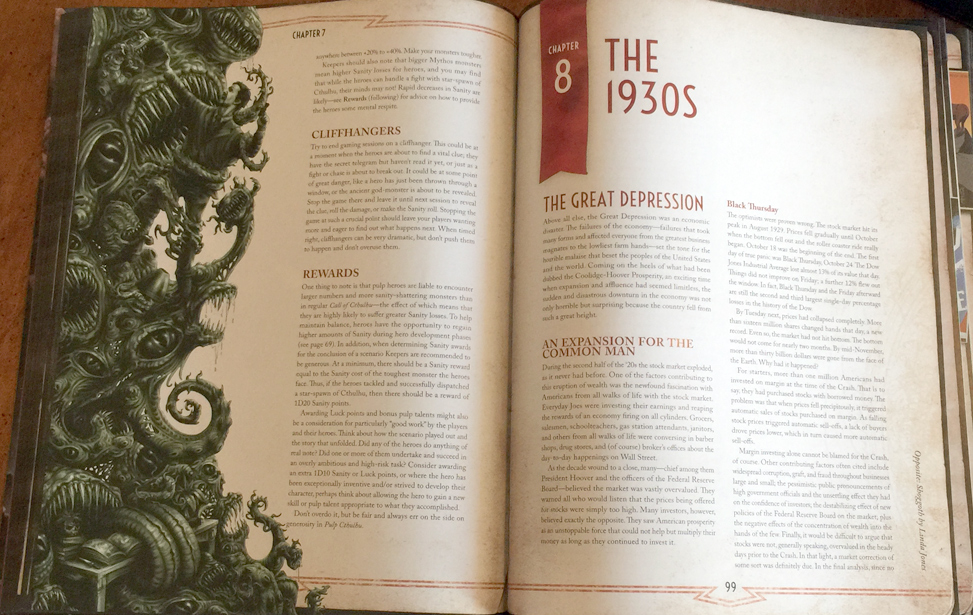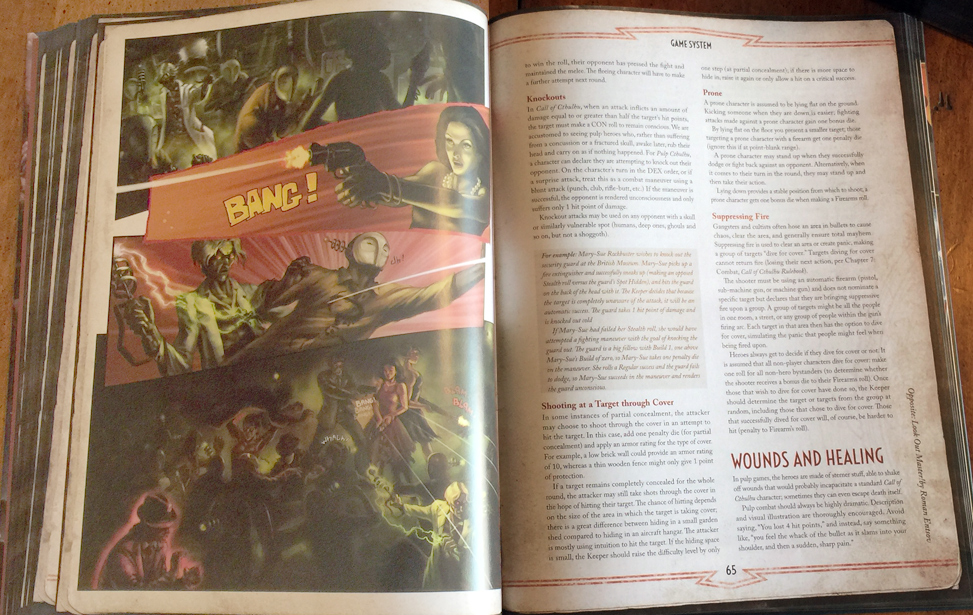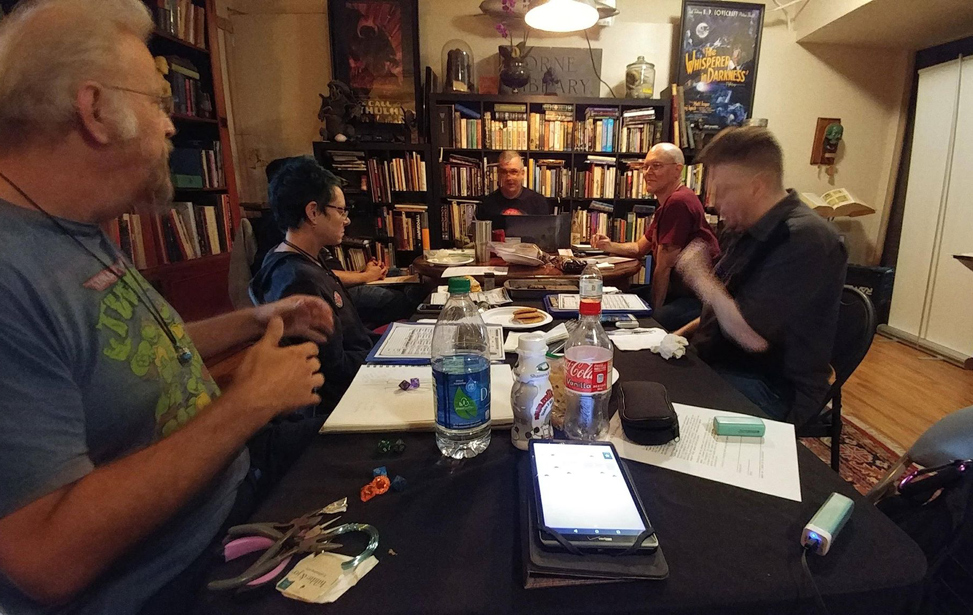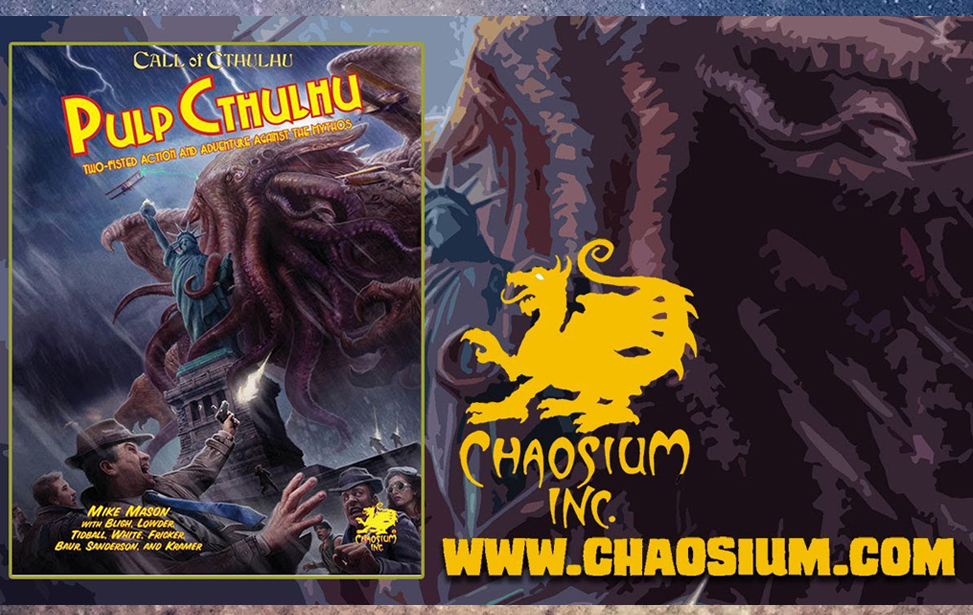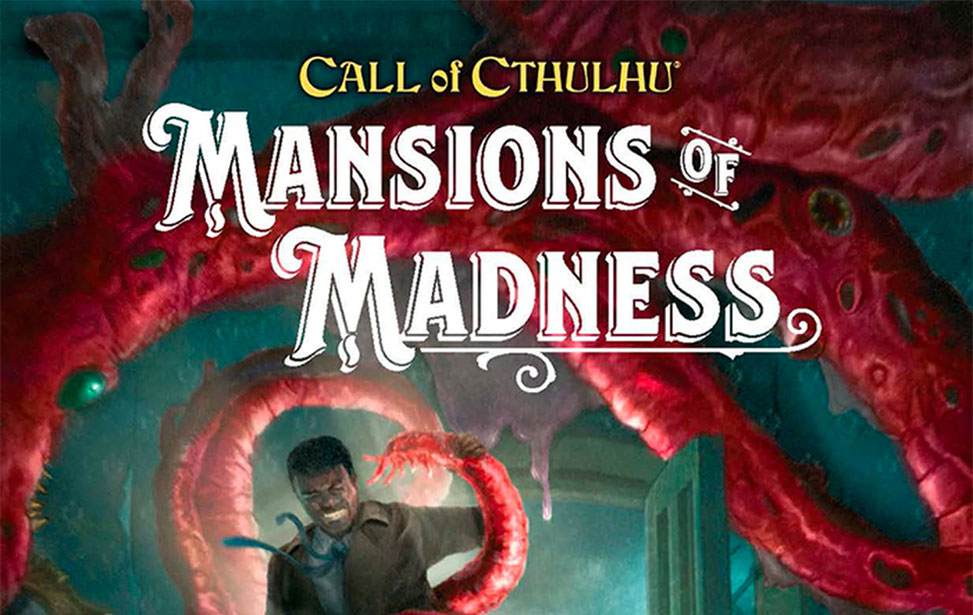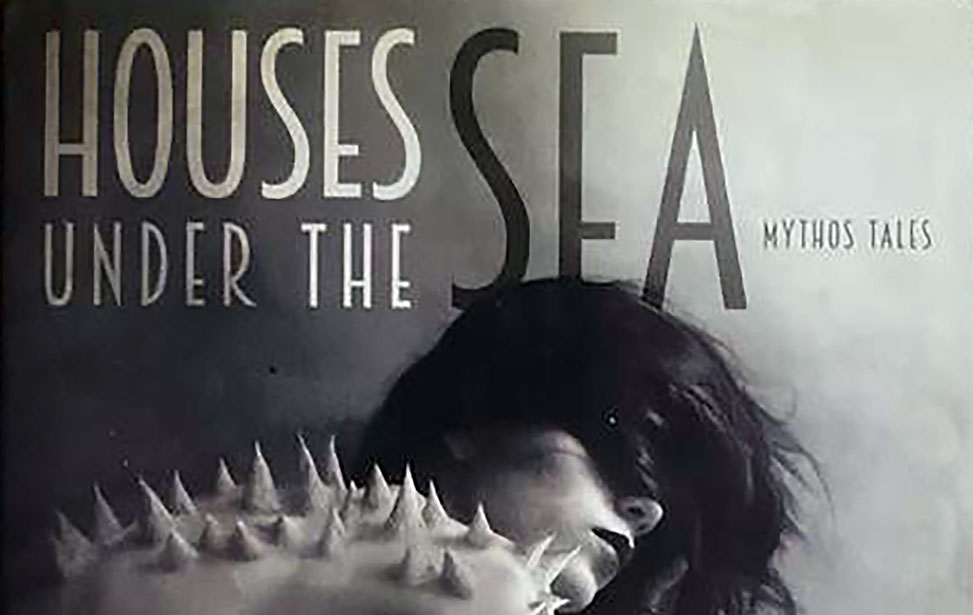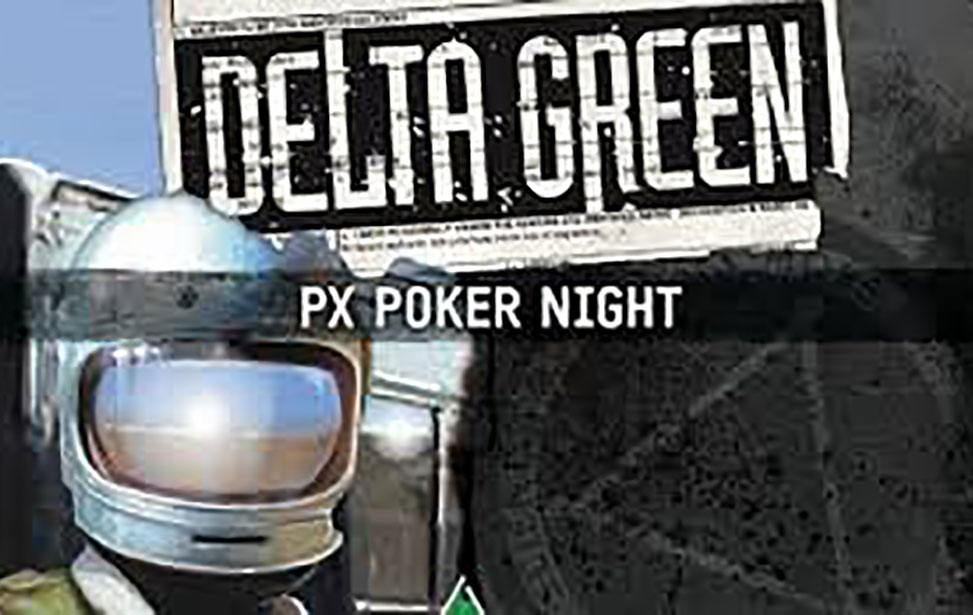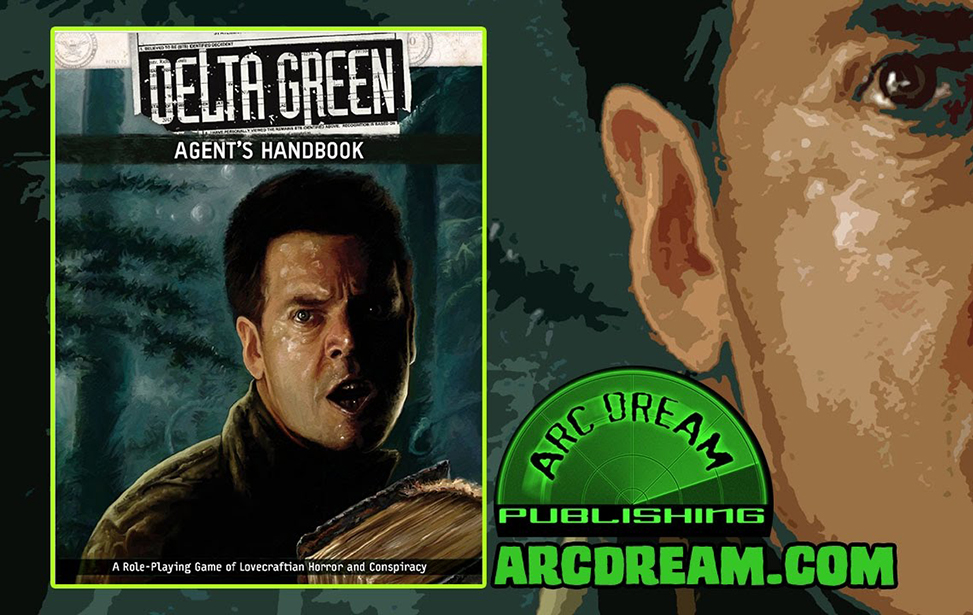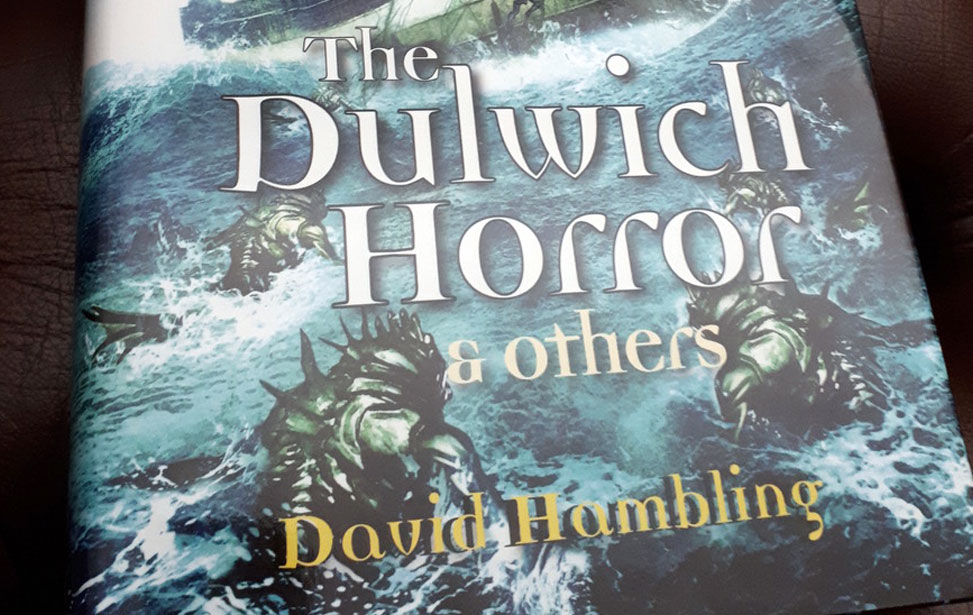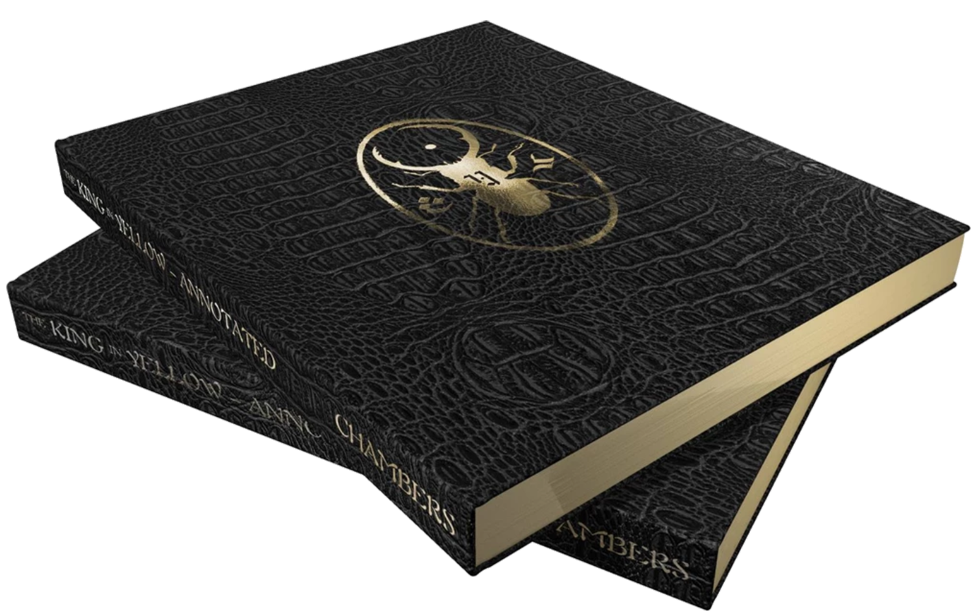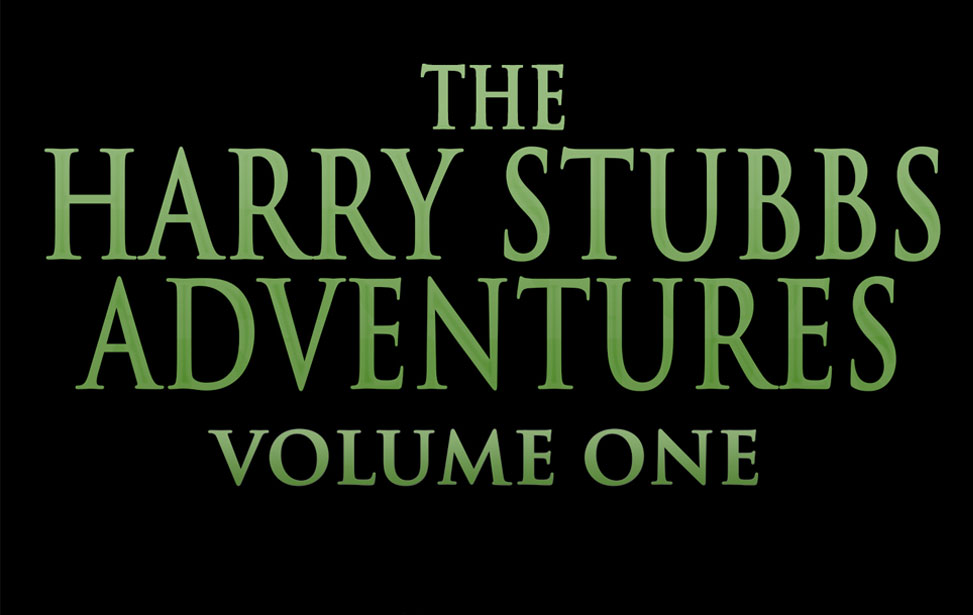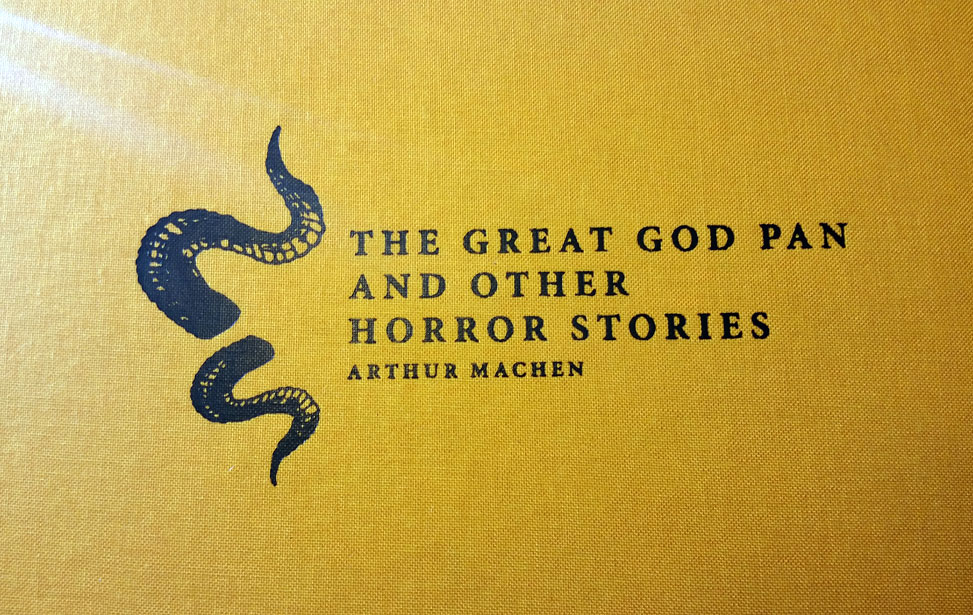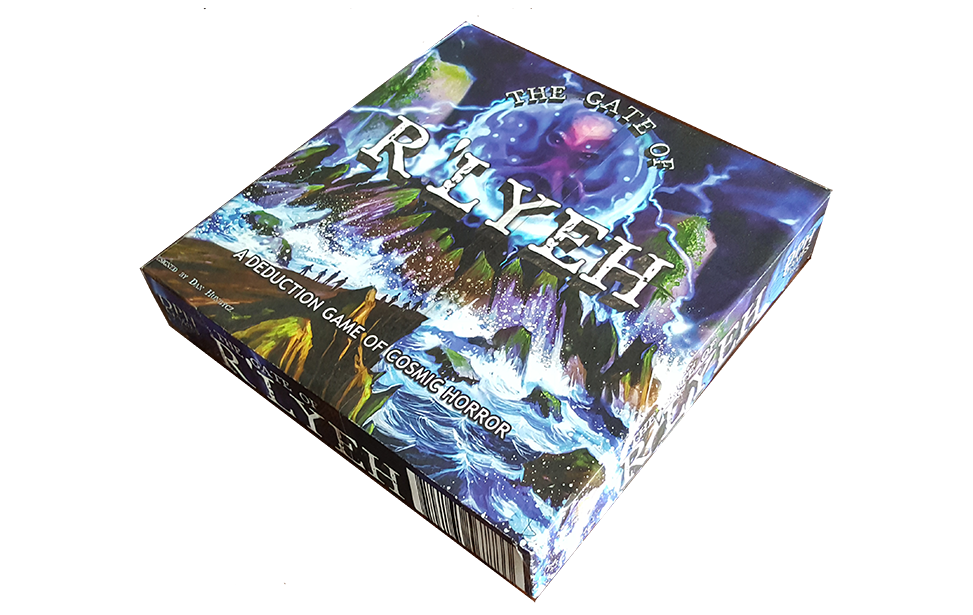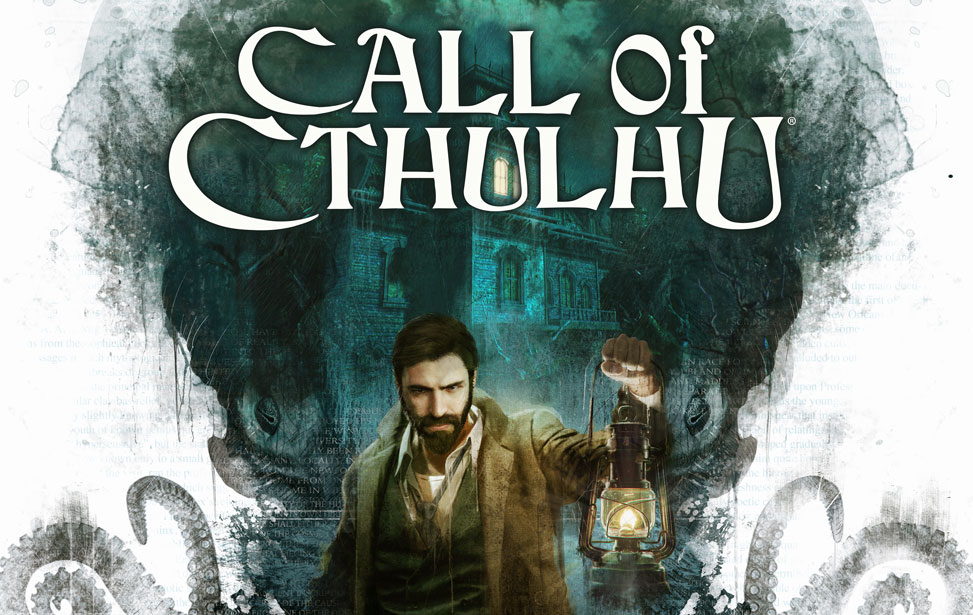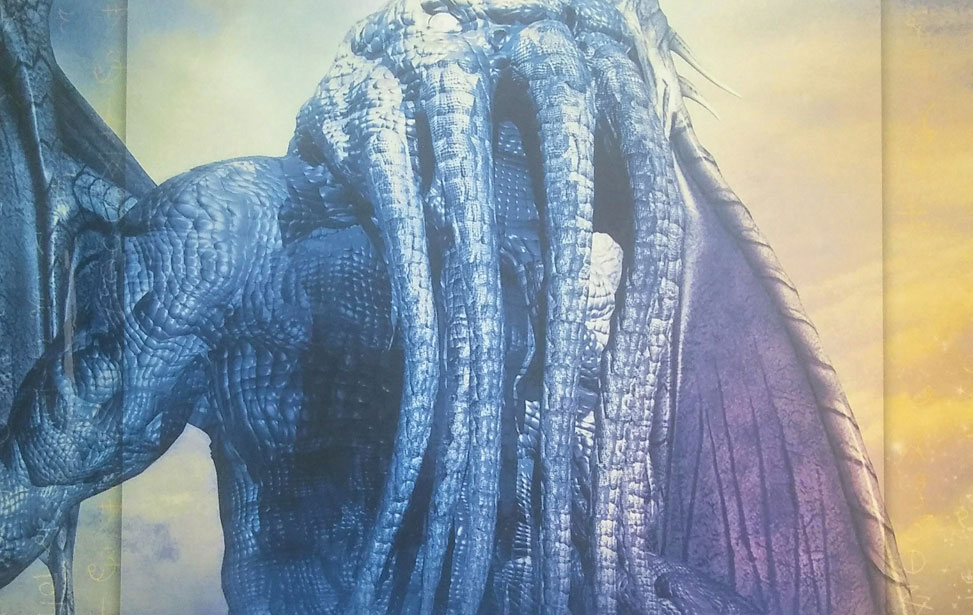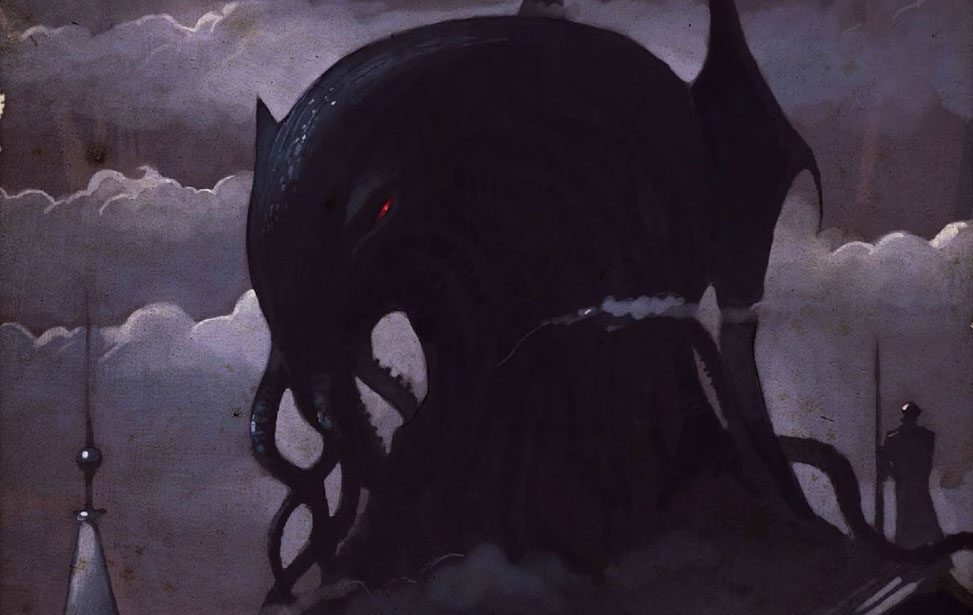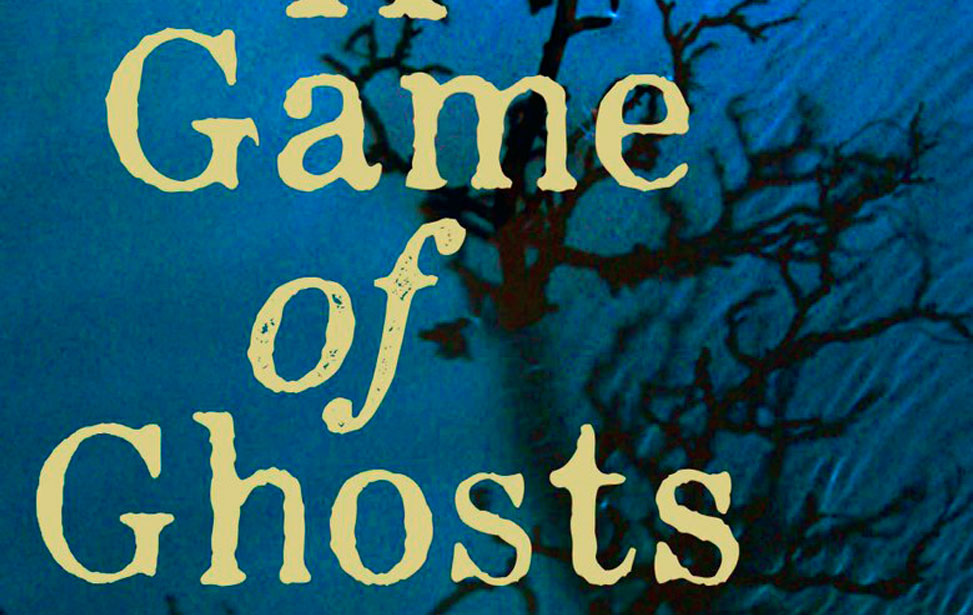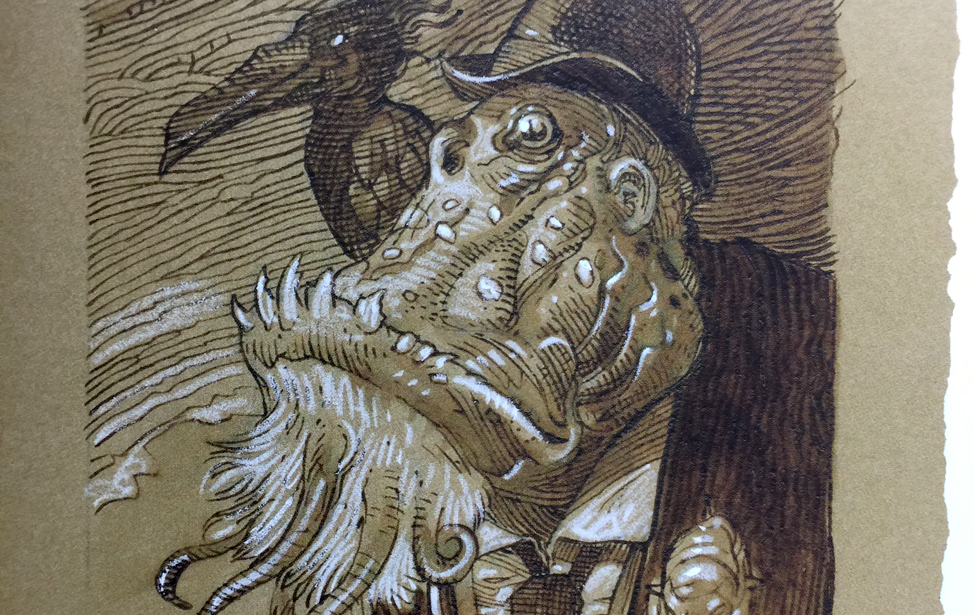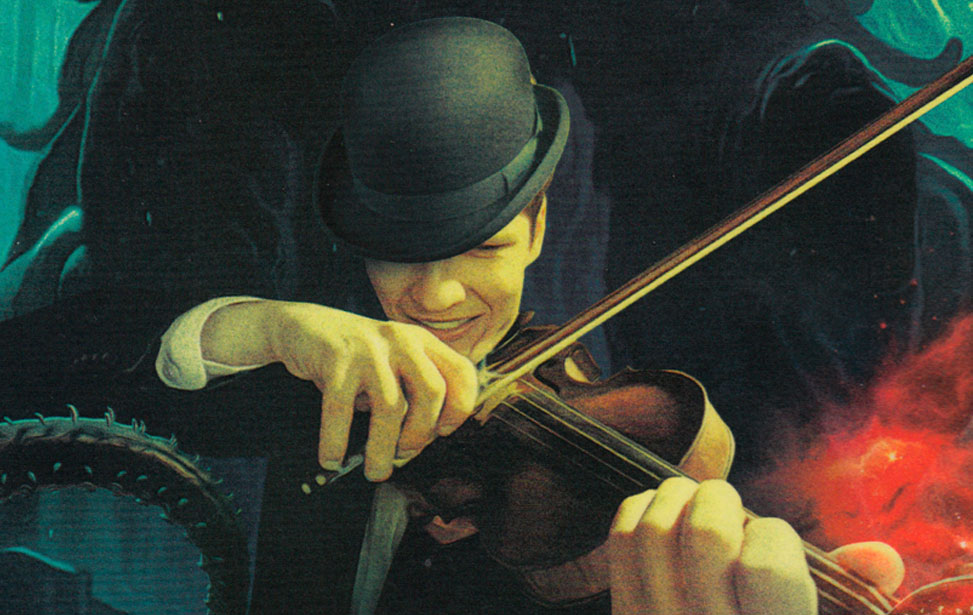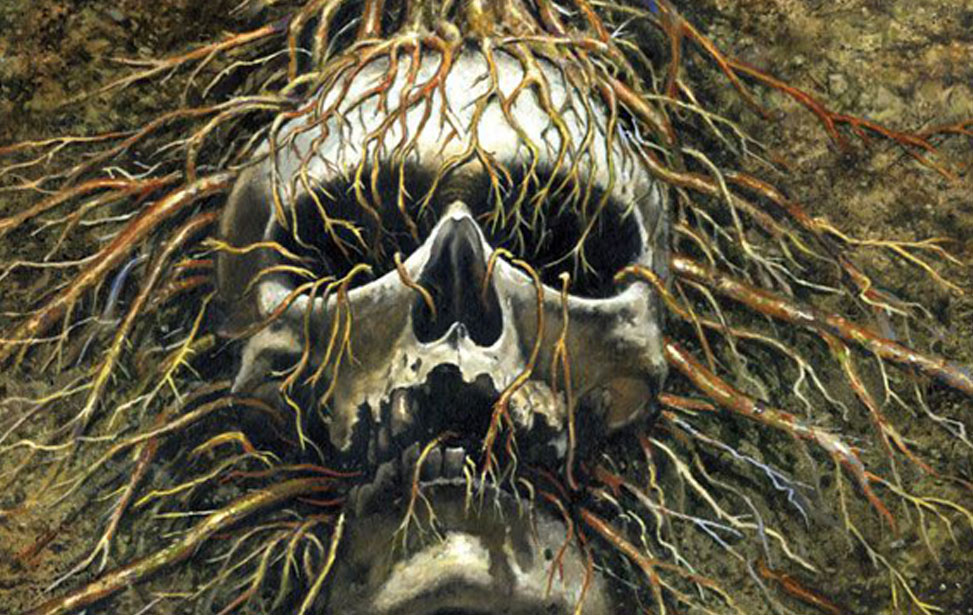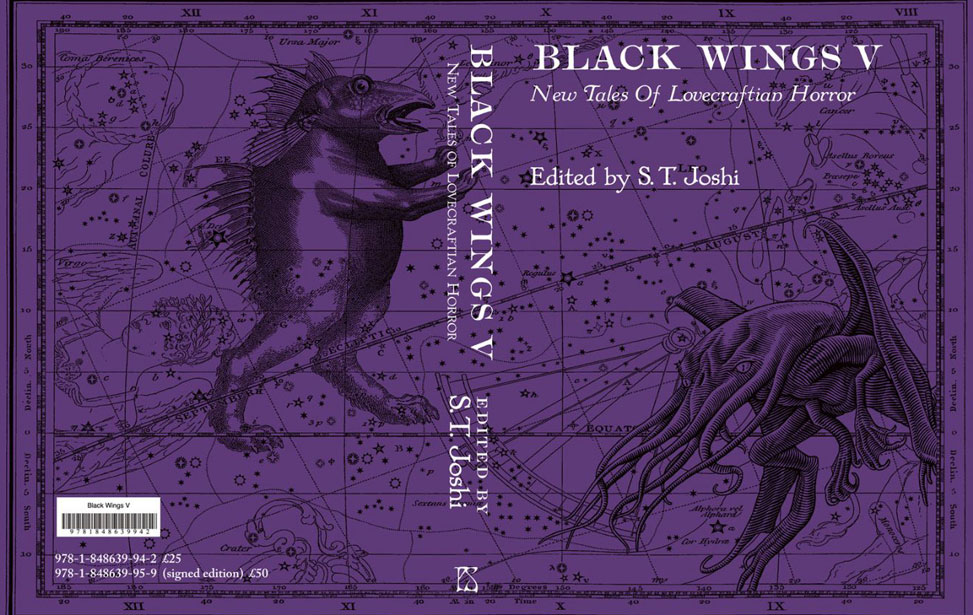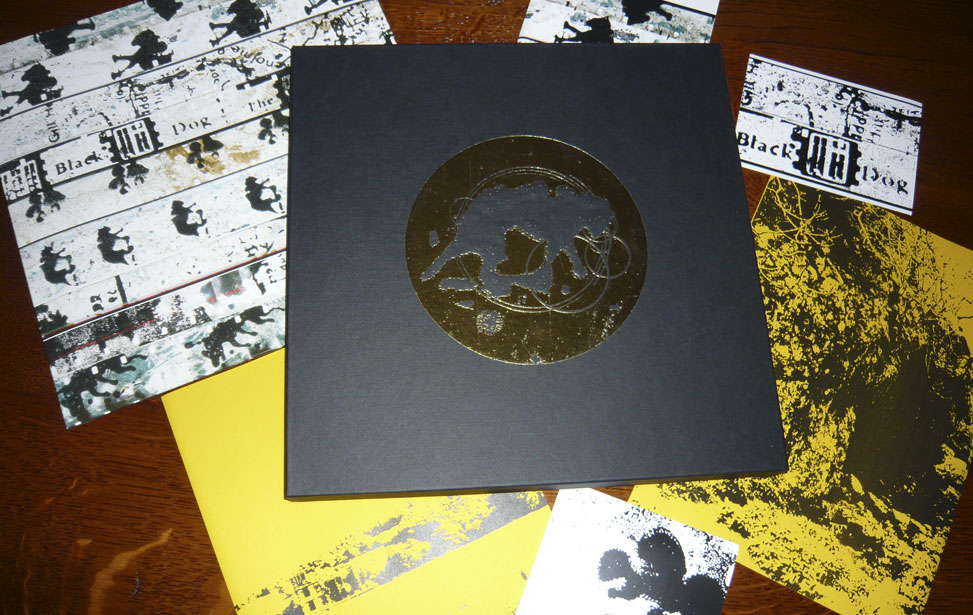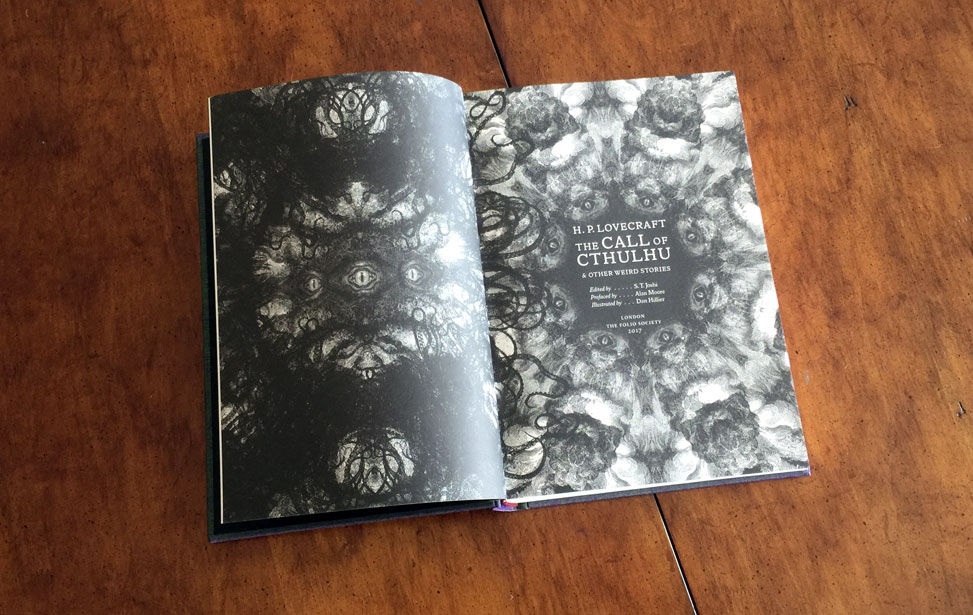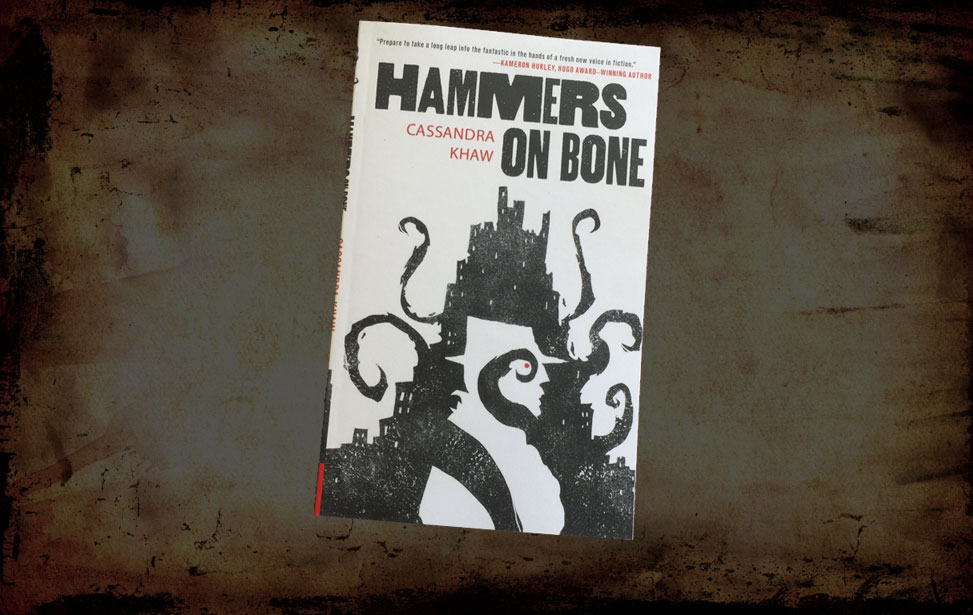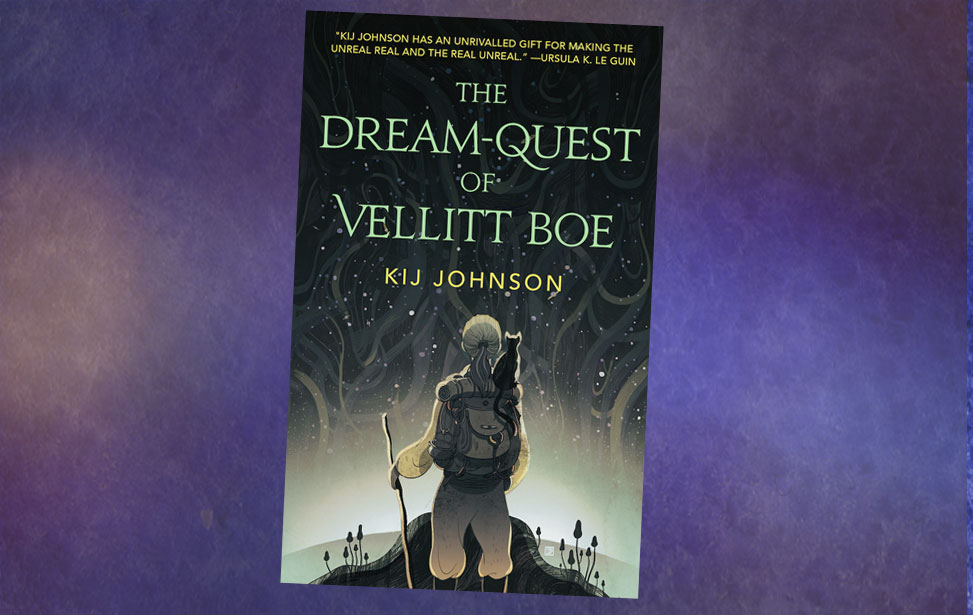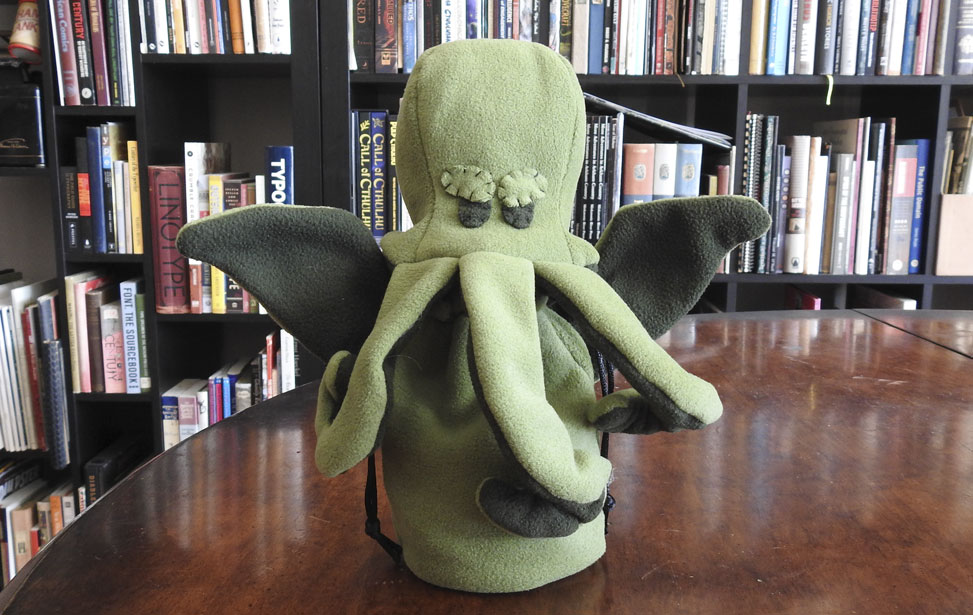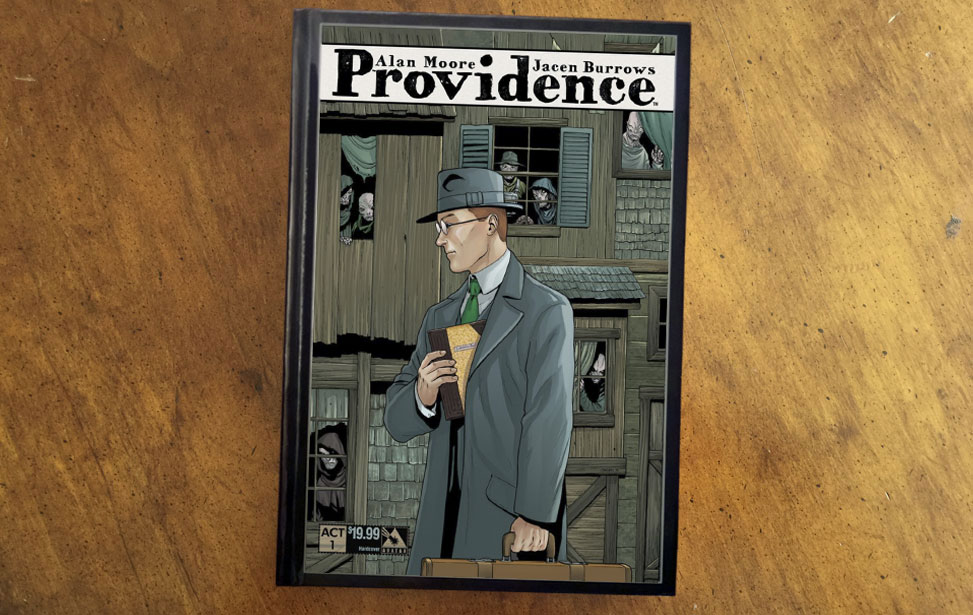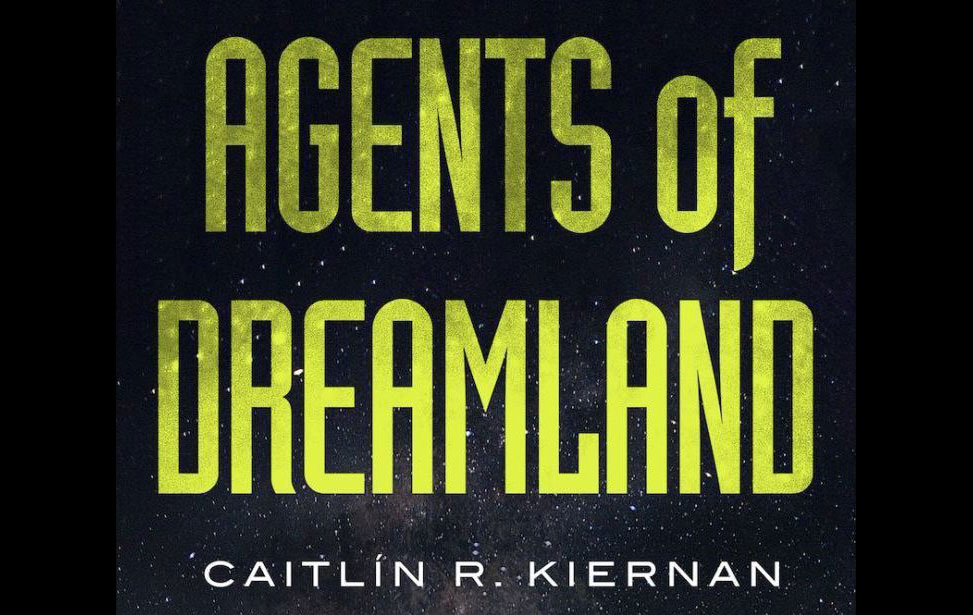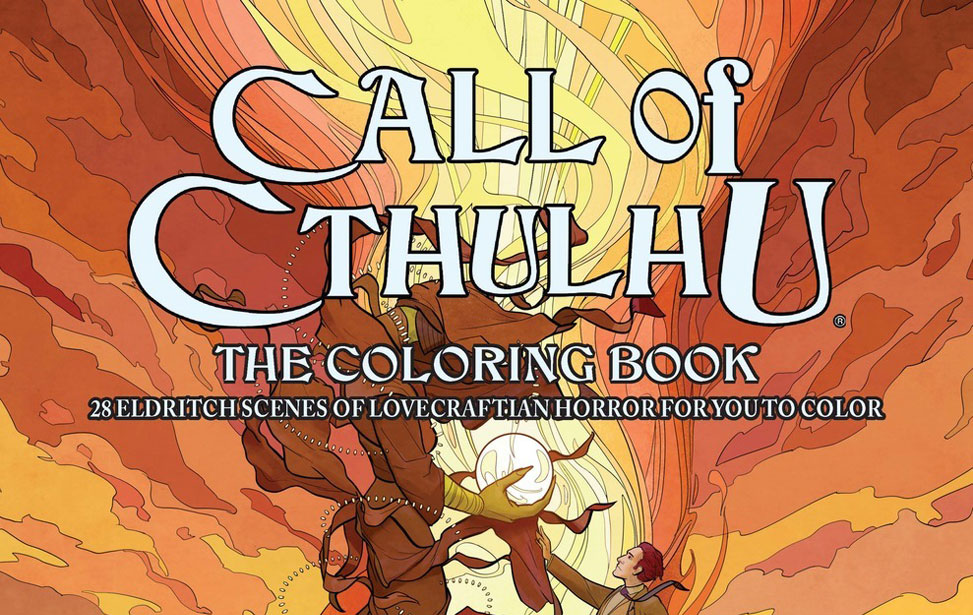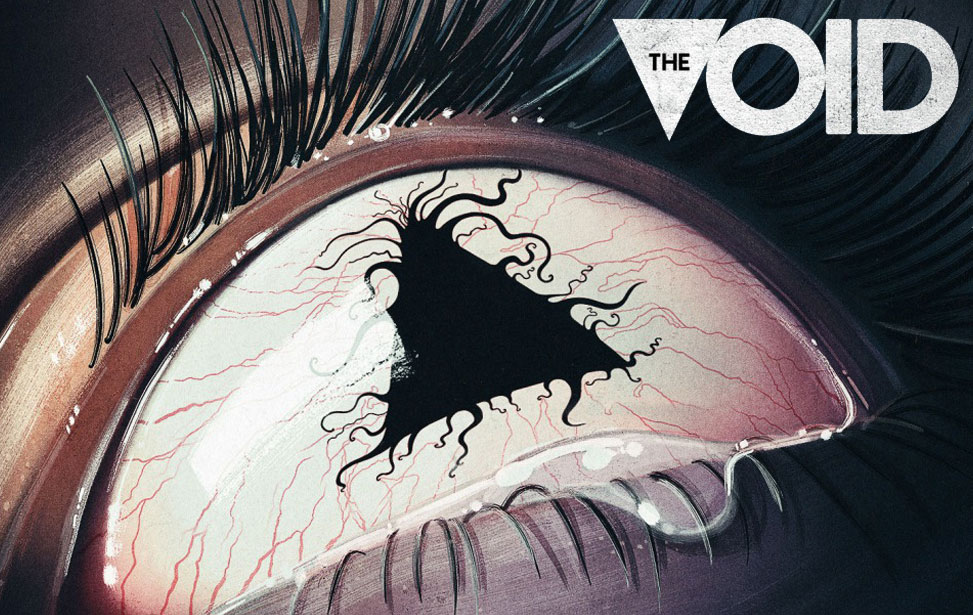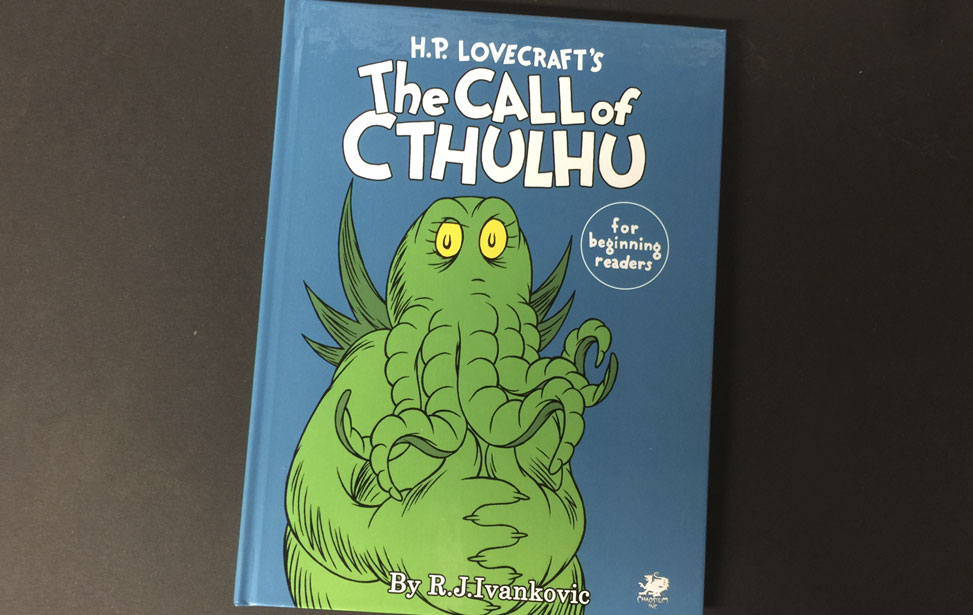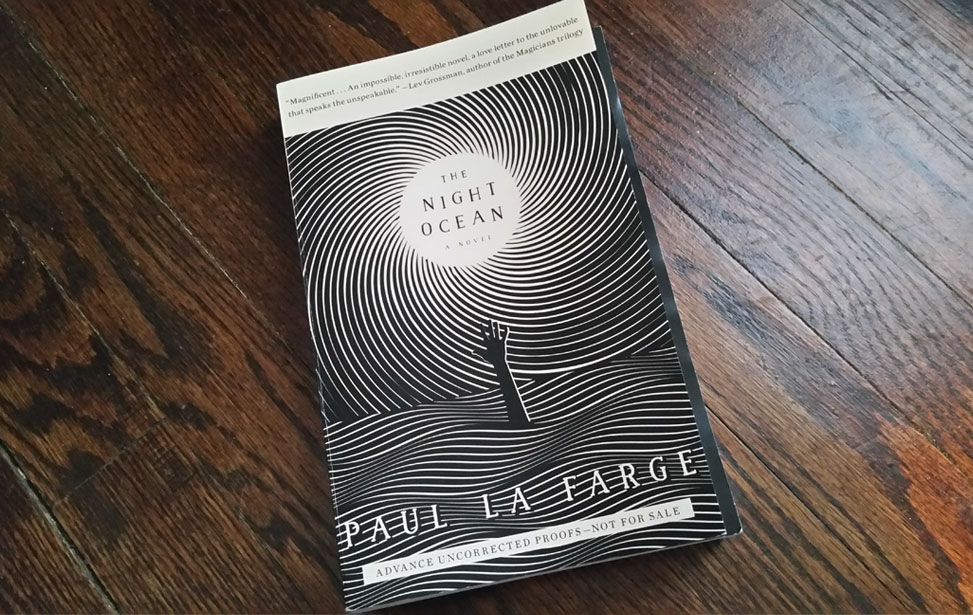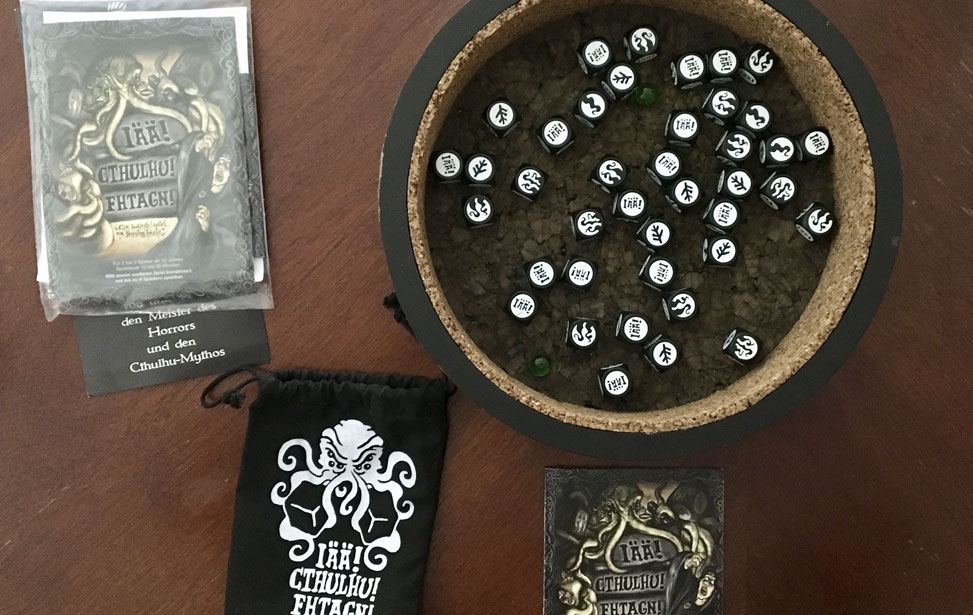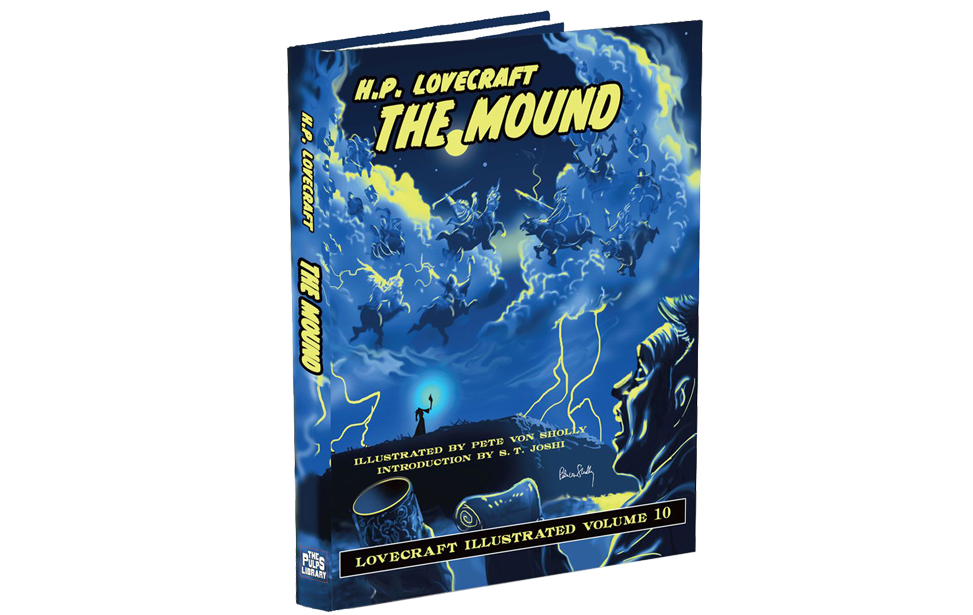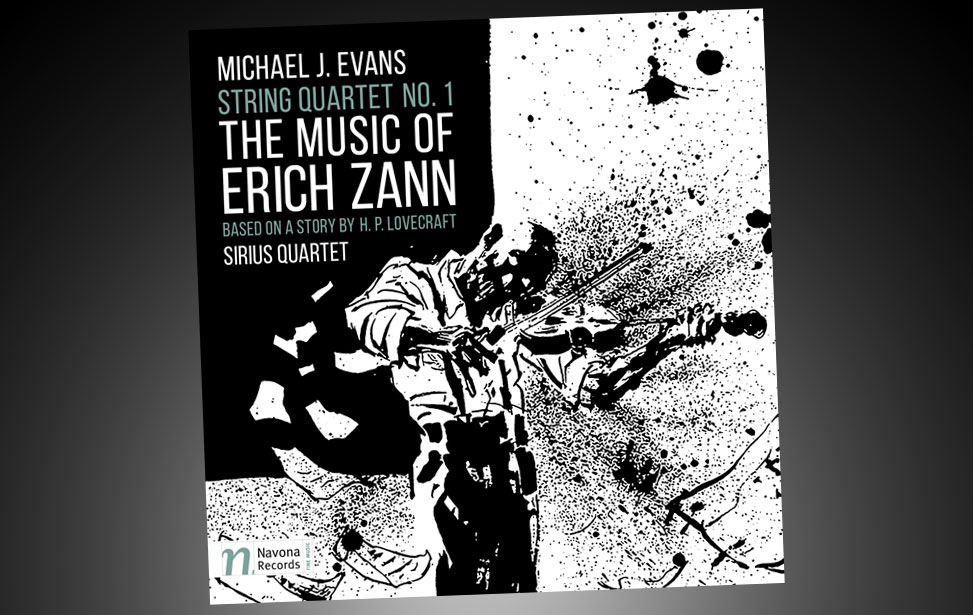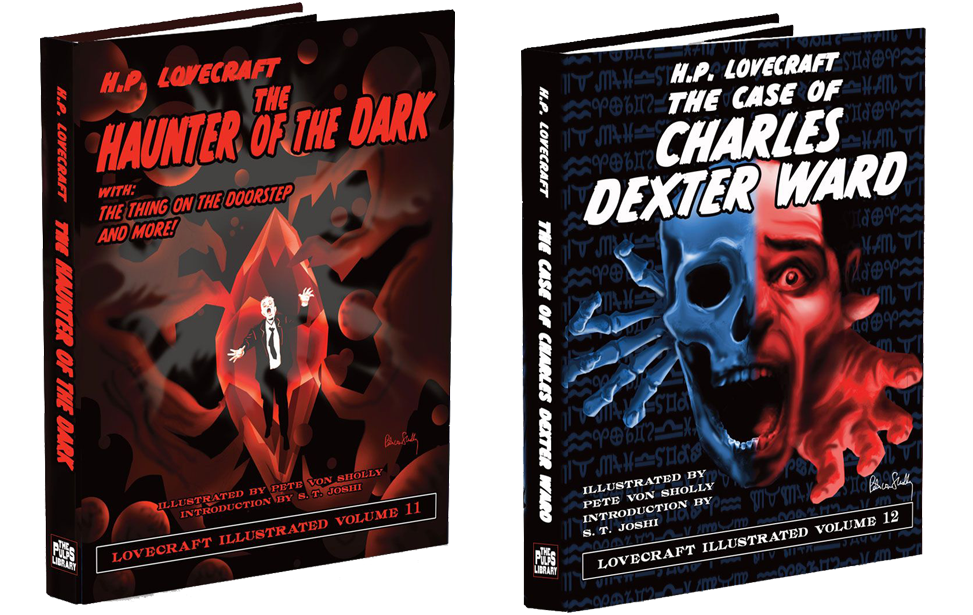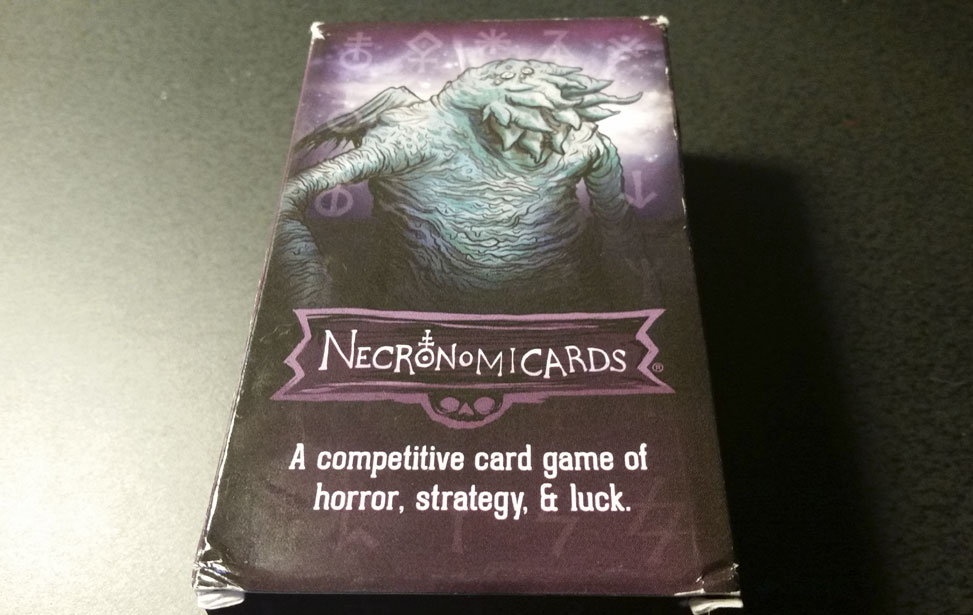Pulp Cthulhu
Chaosium offers up an alternative rule set for the classic RPG Call of Cthulhu which brings the game into the two-fisted world of pulp action. It's the game you love, but characters are on steroids and this time, just maybe, they stand a fighting chance.
- Overall: B B B B B
- Quality: Q Q Q Q Q
- Value: V V V V V
- by Mike Mason, with Bligh, Lowder, Tidball, White, Fricker, Baur, Sanderson and Kramer
- Published by Chaosium, Inc.
- Price: $44.95 (hardcover), $22.50 (PDF download)
Review by Sean Branney
November 14, 2017
Call of Cthulhu is a widely played, cherished and acclaimed role playing game set in the worlds of H.P. Lovecraft. It differs from D&D and other games of the genre by creating a horrifying world inspired by Lovecraft's writings, and characters in the game (like characters in the story) are drastically outmatched by the dark forces they face. As a result, Call of Cthulhu characters are famously prone to short careers ending in death and madness. This is a great part of the game's charm and fun, yet for some players, there's a frustration in the fact that the odds are tilted in the bad guys' favor. Enter Pulp Cthulhu.
Mike Mason and his team have forged an alternative set of rules for Call of Cthulhu which take the game out of an explicitly Lovecraftian milieu and move it into the broader world of the pulp stories of the '20s and '30s. In keeping with the tone of pulp stories in general, the protagonists are hearty, hard-boiled, and are up to the task of confronting the nefarious forces they face. The difference between Call of Cthulhu and Pulp Cthulhu is the difference between the motion picture The Call of Cthulhu and Raiders of the Lost Ark. The new rule set helps keepers and players create characters who are not everyday people confronting dark forces; rather, these characters have higher abilities, they have better skill sets, they're harder to kill and less likely to go insane. And as a result they're better prepared to go head to head with the powerful forces of the Cthulhu Mythos and possibly walk away with their limbs and sanity intact.
Some players may not be familiar with the literature of pulp stories of the early 20th century. For them, Pulp Cthulhu spends quite a bit of time painting a picture of the pulps: what they were like, their heroes, their villains, their plots and their tendencies. The next part of Pulp Cthulhu walks players through the process of creating characters for the game which are skew towards pulp archetypes. These archetypes (including, for example, adventurers, explorers, eggheads and sidekicks) help ensure that the characters which are created will "fit" into a pulp universe. Next, players generate characteristics for their players, rolling up their attributes with dice and and selecting talents for their characters. Pulp characters are generally more robust than standard Call of Cthulhu characters - as they should be. We really don't want to see Indiana Jones fighting the giant bald Nazi in front of the airplane and have Indy get beaten up in a round or two. Characters then get special mental, physical and combat talents before the player selects their occupation. The character's occupation then specifies additional skills for the characters to which the player will allocate appropriate numbers of points to reflect their abilities. The result of the character creation process is that the player ends up (hopefully) with a character who would feel right at home on the pages of Weird Tales or Astounding Stories.
Actual play of the game is fairly straightforward, though Pulp Cthulhu throws in a few rules to help pulp characters out. Players may spend their Luck points to change the outcome of a skill or characteristic roll. Sanity losses may also be halved through an expenditure of Luck points (this proved invaluable in our playtest). Spending Luck can also help avoid unconsciousness, grievous injuries and certain death. Some combat rules have been retooled to give players and edge as have the rules governing death and dying. Chaosium has provided prospective keepers with a Pulp-o-Meter set of rules; these are rules which Keepers can use if they want an especially outrageous world with improbable but thrilling twists and turns, or which they can ignore in favor of slightly more realistic gaming. Rules are also provided for Weird Science - the strange gadgets, gizmos and doo-dads which are staples of the pulp world.
As a background book, Pulp Cthulhu provides substantial background about the history of the 1930s which may be relevant to play or which may inspire Keepers in developing adventures. They also provide sample pulp villains and other characters as well as sample organizations for good and not-so-good in a pulp universe. The book contains some pulp adventures too: "The Disintegrator", "Waiting for the Hurricane", "Pandora's Box", and "A Slow Boat to China". Handouts and maps are provided for the adventures. The book closes out with Pulp Cthulhu character sheets and convenient reference tables. Overall the layout is on par with the recent books of the new and improved Chaosium. While some of the artwork is quite a bit better than some of the less inspired art in the book, the inclusion of ample photographs makes for a pleasing layout.
To really get a feel for Pulp Cthulhu, we decided to put it through its paces, playing the scenario "The Disintegrator" here at HPLHS Headquarters. For players and the Keeper alike, it took a while to settle into the "larger than life" quality intended for this world. But as the game got further along and things heated up, the pulpiness began to blossom. As a Keeper, at first I was bothered by the fact that my players had a close encounter with a very dangerous thing and emerged alive and sane. In a Call of Cthulhu game, the moment would have surely resulted in TPK or D/MFA (Total Party Kill or Death/Madness for All). But hey, this is a pulp world - Indiana Jones probably would have survived the encounter, and hey, my players did too. The players particularly seemed to enjoy spending their Luck like drunken sailors, fixing dodgy dice roles and squeaking out of peril by the proverbial skin of their teeth.
If you play Call of Cthulhu, do you need this supplement? If you've read this far, you probably know if your games are more prone to professors going mad from reading fragments of Greek parchments or if your games involve chases, gore and dynamite. If you're the former type of gamer, you probably only need Pulp Cthulhu if you deliberately want to shake things up and let your players knock around Mythos forces (instead of the other way around). If your games already tend towards mayhem, violence and improbable outcomes, you may not need Pulp Cthulhu either. But if you want to play with a rule set deliberately intended to help your characters kick some ass, you'll probably have a lot of fun with Pulp Cthulhu.
